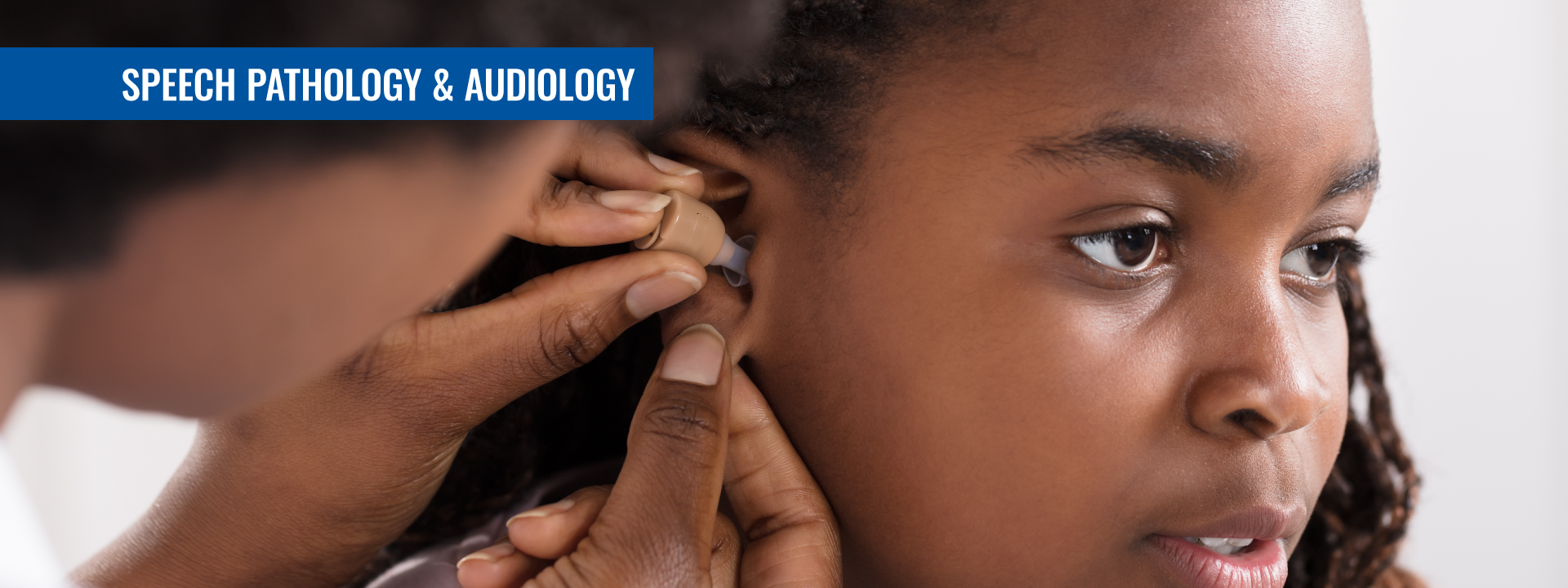Exactly How a Speech Pathologist Can Assist Improve Interaction Abilities
Efficient interaction is a foundation of expert and personal success, yet several individuals face obstacles that impede their capacity to reveal themselves clearly. A speech pathologist is geared up to address these obstacles through targeted analysis and intervention approaches tailored to each person's requirements.
Understanding Interaction Disorders
Comprehending communication conditions is essential for identifying how they affect individuals' capability to share themselves and engage with others. Interaction disorders include a wide variety of troubles that affect speech, language, and social communication, often impeding reliable communication. These conditions can emerge from various aspects, consisting of neurological conditions, developing hold-ups, physical impairments, or mental concerns.
Speech problems may materialize as troubles in expression, fluency, or voice production, impacting exactly how words are obvious or talked. Language disorders, on the other hand, include obstacles in understanding or making use of language, which can impede both verbal and non-verbal communication. Social interaction problems are identified by difficulties in the pragmatic aspects of communication, such as taking turns in conversation or understanding social hints.
The repercussions of interaction problems are extensive, influencing not just the person's capability to share ideas and feelings yet also their social relationships, educational opportunities, and overall high quality of life. Understanding of these conditions can promote empathy and support, encouraging effective strategies for communication and engagement. Understanding the intricacies of interaction problems is a crucial step in the direction of advertising inclusivity and resolving the requirements of those impacted.
Function of a Speech Pathologist
Speech pathologists frequently play a vital duty in treating and diagnosing interaction problems, utilizing a variety of evidence-based techniques customized per individual's needs. These specialists collaborate with individuals across the life-span, from kids with speech delays to grownups recuperating from strokes or terrible brain injuries. Their expertise incorporates a range of communication concerns, including expression, language, fluency, and voice conditions.
In therapeutic settings, speech pathologists utilize structured treatments developed to boost interaction abilities. They may implement approaches such as speech exercises, language video games, and social communication training to promote enhancements in responsive and expressive language capacities. Speech Pathologist. Additionally, they enlighten clients and their households about efficient interaction methods and flexible methods to browse day-to-day interactions
Beyond straight therapy, speech pathologists work together with various other healthcare instructors, professionals, and caregivers to ensure a detailed strategy to treatment. They advocate for clients by giving sources and support, enabling individuals to accomplish their interaction objectives and improve their overall high quality of life. As professionals in the area, speech pathologists are essential in fostering efficient interaction, advertising freedom, and boosting social engagement for those with communication challenges.
Evaluation and Diagnosis Process
The evaluation and diagnosis process carried out by speech pathologists commonly involves a comprehensive assessment to identify communication disorders accurately. This process begins with a detailed case history, where the clinician collects pertinent information about the person's clinical, instructional, and developing background. Comprehending the context of the individual's communication troubles is crucial for an exact medical diagnosis.
Complying with the situation history, speech pathologists utilize standard examinations and informal assessments to review numerous elements of communication, including speech sound manufacturing, language comprehension, expressive language, and social interaction skills. These assessments are customized to the person's age and particular concerns, giving useful data for evaluation.
Monitoring is also a critical part of the evaluation procedure, as it enables the clinician to see direct how the specific connects in all-natural settings. In addition, interviews with household members and educators can offer understanding into the person's communication obstacles across various environments.
As soon as the assessment important source is full, the speech pathologist synthesizes the searchings for to determine a medical diagnosis and recommend proper treatments. This extensive analysis process makes certain that individuals get targeted assistance tailored to their special interaction needs, laying the structure for reliable therapeutic methods.
Therapeutic Methods and Approaches
Numerous restorative strategies and techniques are utilized by speech pathologists to resolve a variety of communication conditions properly. One widely used technique is expression treatment, which focuses on fixing speech seems via rep and visual cues. This technique is especially valuable for people with speech sound disorders.
Another efficient method is language treatment, which boosts both responsive and meaningful language abilities. This might entail interactive tasks that advertise vocabulary growth, sentence framework understanding, and conversational abilities. Additionally, speech pathologists frequently use social skills educating to boost practical language have a peek at this website abilities, allowing people to browse social communications more successfully.
Fluency shaping and stuttering adjustment strategies are especially made to assist those experiencing fluency problems. These strategies aid clients develop smoother speech patterns and handle the physical and emotional components of stuttering.
Moreover, click here to read alternate and augmentative interaction (AAC) systems are utilized for individuals with extreme communication problems. These systems, which can include gestures, symbols, or electronic devices, give vital assistance for effective interaction.
Advantages of Speech Therapy

Furthermore, speech therapy can aid in establishing crucial listening and understanding abilities, cultivating better communication in discussions. People with cognitive-communication problems can also profit, as therapy concentrates on strengthening memory and analytic capabilities, necessary for reliable interaction.
Another essential facet is the psychological assistance provided during therapy sessions. Speech pathologists produce a safe setting, motivating individuals to conquer stress and anxiety and disappointment associated to their interaction problems. This assistance can cause boosted self-esteem and total psychological well-being.
In addition, very early treatment via speech therapy can avoid additional complications, making sure that individuals reach their complete communicative possibility. On the whole, the advantages of speech treatment extend past mere speech improvement, favorably impacting numerous dimensions of life for those impacted by interaction problems.
Conclusion
In summary, speech pathologists play a critical function in attending to interaction disorders through evaluation, medical diagnosis, and customized restorative treatments. By utilizing evidence-based strategies, these specialists improve individuals' speech and language capacities, cultivating improved quality, fluency, and social interaction skills. The advantages of early treatment emphasize the value of looking for support from speech pathologists, as their knowledge can significantly improve communicative capacity, inevitably leading to greater success in both specialist and individual rounds.

Speech pathologists regularly play an essential function in treating and identifying communication problems, employing a variety of evidence-based methods customized to each person's needs. As professionals in the area, speech pathologists are vital in cultivating effective communication, promoting self-reliance, and boosting social engagement for those with interaction challenges.
